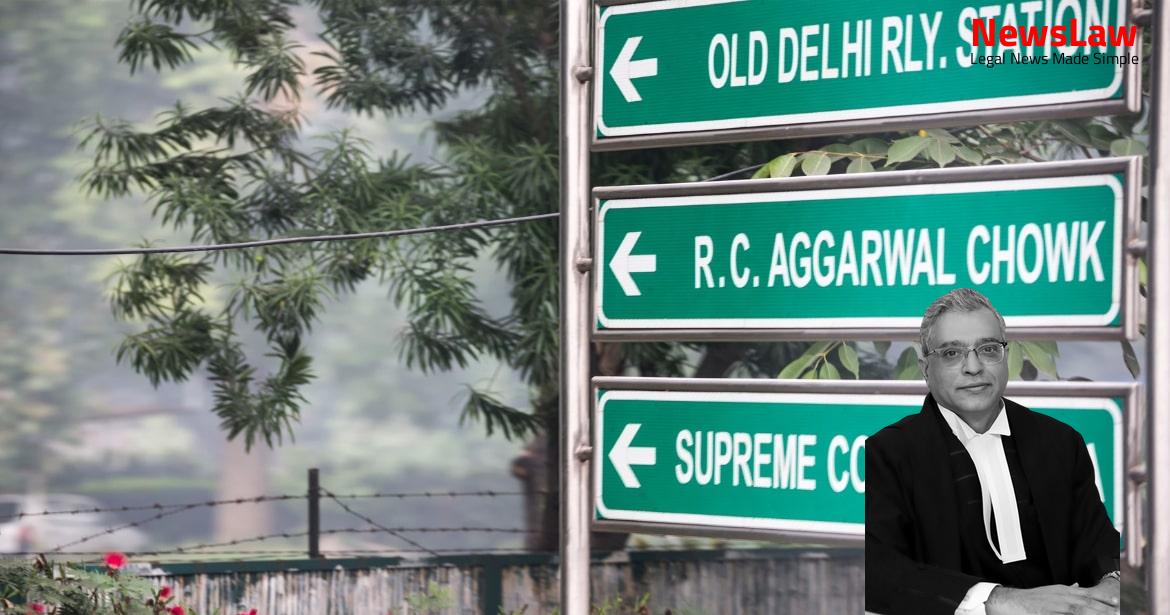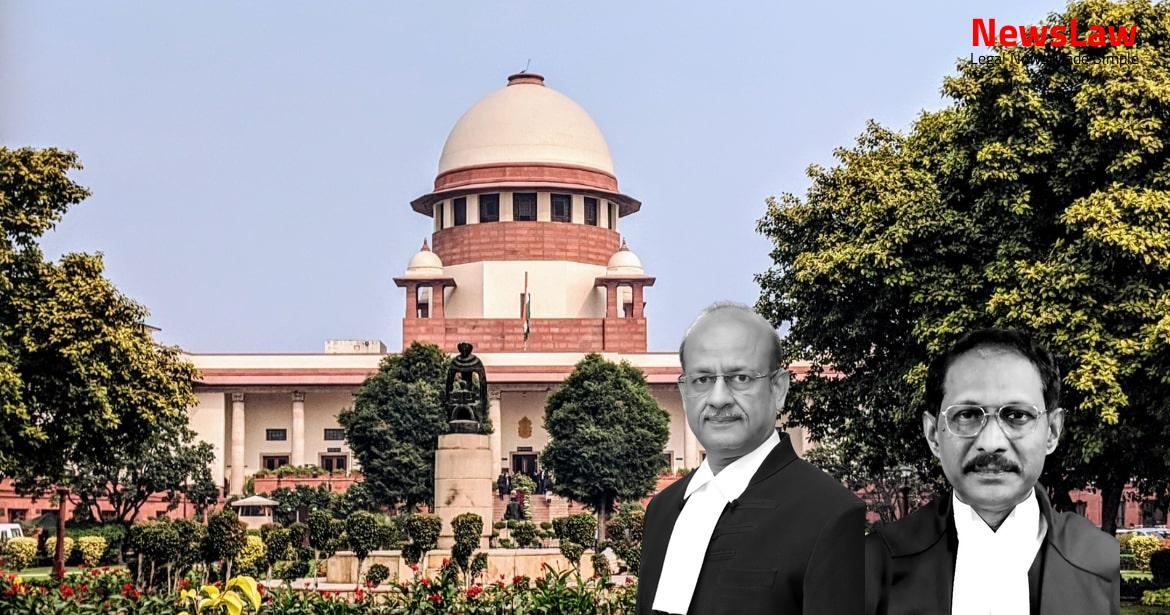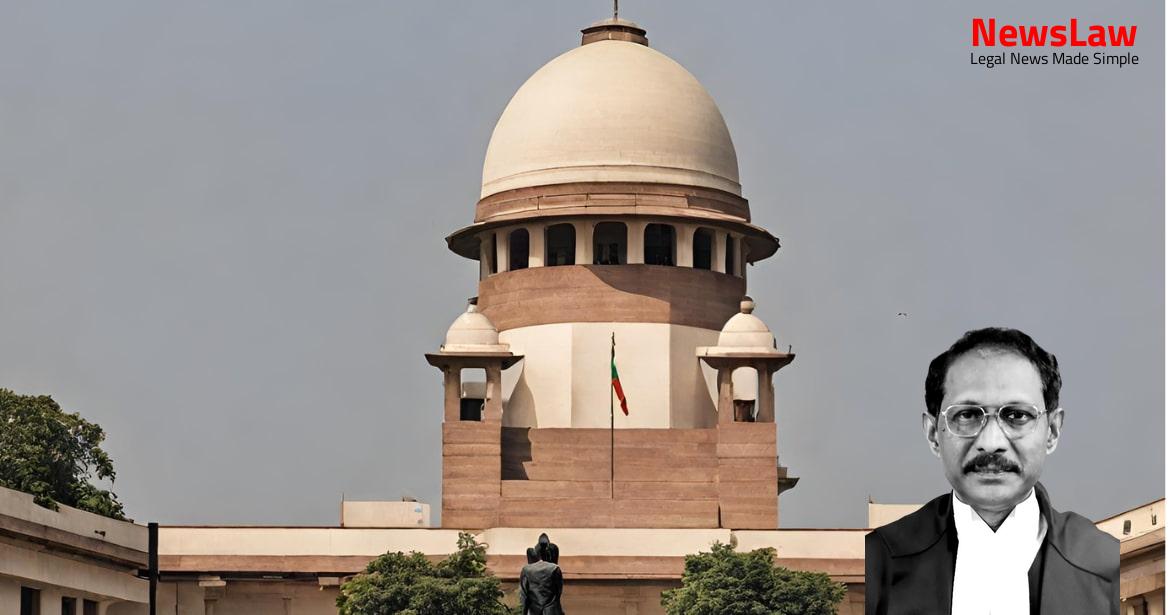In the realm of contractual matters, court jurisdiction and legal analysis play a crucial role in upholding fairness and transparency. Our latest blog post explores the intricacies of judicial review in tender disputes, shedding light on the principles that govern such cases. Join us as we delve into the complexities of ensuring equitable outcomes in procurement processes and navigating the landscape of contractual obligations with clarity and precision.
Facts
- The appellant-Board issued multiple tenders to procure cardamoms and faced challenges with bids failing to meet standards.
- FSSAI deemed the product ‘unsafe’ through reports on samples failing to meet minimum standards.
- High Court restrained distribution of Aravana Prasadam and ordered the sealing of the warehouse where it was stored.
- Respondent no. 1 was the successful bidder in 2021 and supplied cardamom to the appellant-Board.
- The appellant-Board filed an application seeking permission to test the sealed Aravana stock for safety pending the writ petition.
- Multiple tenders for cardamom procurement were cancelled due to pesticide content beyond permissible limits.
- Appellant-Board had to invoke urgency clause for cardamom procurement due to the festive season approaching.
- The High Court dismissed an application from the appellant-Board seeking permission to test the sealed Aravana stock.
- The High Court allowed a writ petition to conduct analysis of cardamom purchased post-tender cancellation, which was termed ‘unsafe’.
- High Court allowed the writ petition on 11.04.2023
- Impugned interim order dated 27.03.2023 was affirmed
- High Court relied on previous tests to dismiss the application
- Appellant-Board is considered a ‘food business operator’
- Appellant-Board has the obligation to ensure food safety and purity
Also Read: Legal Analysis in Civil Appeal Case
Issue
- The issue to be considered is whether the writ petition filed by respondent no. 1 should have been entertained by the High Court.
- This question raises the issue of whether the High Court had the jurisdiction to entertain the petition and the validity of the petitioner’s claim.
- The court will need to analyze the grounds on which the petition was filed and whether they fall within the scope of the High Court’s jurisdiction.
- The decision on this issue will impact the further proceedings of the case and the rights of the parties involved.
Also Read: Ensuring Procedural Integrity in Environmental Safeguarding
Arguments
- The petitioner’s argument is based on unresolved business conflicts and underlying rivalry.
- References are made to the decisions in S.P. Gupta v. Union of India, 1981 Supp SCC 87 and Ashok Kumar Pandey v. State of West Bengal, (2004) 3 SCC 349.
- The contention is against the appellant-Board’s determination as a ‘food business operator’ and emphasizes that the Board ensures devotees’ health is not compromised.
- It is argued that the High Court should not have entertained the writ petition but dismissed it at the outset as it involves religious offerings integral to practices.
- The Food Safety and Standards Regulations are mentioned to not regulate such religious offerings.
- The petitioner questions the motivations behind the writ petition and asserts that Aravana Prasadam is not for revenue but considered an offering to devotees.
- The appellant-Board, despite FSSAI’s clearance, is no longer distributing Aravana Prasadam due to the lapse of time and its religious significance.
- Concerns are raised regarding the supply order being issued without proper quality checks.
- There is no fundamental or statutory right to enforce a specific form or standard of prasadam.
- Judicial review based on an individual’s claim of quality is not permissible.
- The High Court should not have interfered in the matter.
Also Read: Procedural Hurdles: Delays and Setbacks in Legal Restoration
Analysis
- Judicial review of contractual matters has limitations, principles of equity and natural justice must stay at a distance.
- Public interest litigation (PIL) jurisdiction should not be invoked in purely contractual matters to avoid proxy litigation.
- Appellant-Board’s decision on cardamom procurement was not arbitrary or unreasonable.
- Participants in tender processes should be cautious when seeking judicial review.
- Interested parties in tenders should be slow to invoke writ jurisdiction.
- Court must ensure that parties approaching for judicial review are bona fide and not driven by personal gain or political motives.
- Tenderers with grievances can seek damages in civil court instead of pursuing judicial review.
- Judicial review is intended to prevent arbitrariness, bias, irrationality, and mala fides in administrative actions.
- The High Court may not entertain writ petitions from interested parties seeking personal gains.
- Appellant-Board’s procurement attempts were legitimate, with tenders being cancelled due to quality issues.
- Unsuccessful parties or non-participants in tenders should be cautious in invoking High Court jurisdiction.
- The tender jurisdiction was created to ensure transparency and the right of aggrieved parties to invoke the jurisdiction of the High Court under Article 226 of the Constitution of India beyond strict enforcement of contractual rights.
- Public Interest Litigation (PIL) can be used to address violations of fundamental rights and statutory provisions, but not for personal gain, private profit, political motives, or any oblique considerations.
- PIL should involve genuine public interest, not personal vendettas or private grudges.
- The judiciary must ensure that PIL is not misused for personal malice, vested interests, or publicity-seeking purposes.
- Writ petitioners in PIL cases must approach the court with clean hands, a clean heart, a clean mind, and a clean objective.
- PIL should aim to address genuine public wrongs or injuries, not be publicity-oriented or based on personal vendettas.
- Courts must evaluate tenders and award contracts based on principles of commercial prudence.
- Court should exercise caution in interfering in contractual and tender matters disguised as PILs, ensuring that PIL is used for delivering social justice to citizens.
- The High Court should have dismissed the Writ Petition on the question of maintainability itself.
- The decision of the appellant- Board is deemed legal, fair, and transparent.
- The petitioner-Board has decided not to distribute the Aravanam Prasadam and the existing stock will need to be destroyed as per the State Government’s protocol.
- The High Court erred in entertaining the writ petition filed by respondent no. 1.
Decision
- Appeals allowed and previous orders set aside.
- Travancore Devaswom Board directed to cooperate in disposal of stock.
- No consideration needed for issue relating to Act applicability.
- Awaiting judgement, concerns raised about Aravanam Prasadam stock.
- Aravanam Prasadam found fit for consumption by FSSAI.
- State Government instructed to dispose of existing stock appropriately.
- Impugned orders found legal in awarding contract to respondent no. 2.
Case Title: THE TRAVANCORE DEVASWOM BOARD Vs. AYYAPPA SPICES (2024 INSC 183)
Case Number: C.A. No.-003866-003867 / 2024



